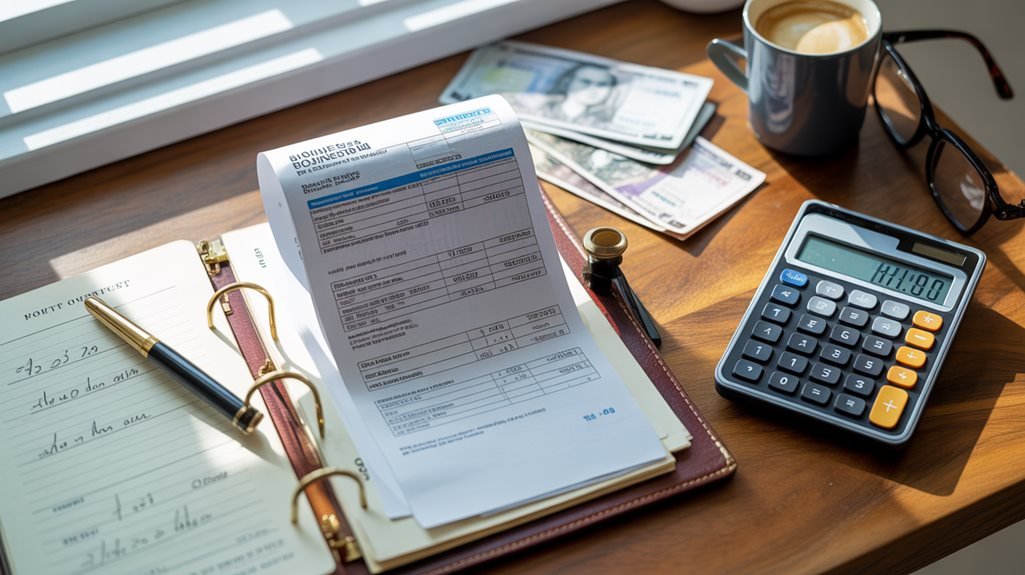Choose your path and get a fast SME energy quote or a domestic energy switching quote in minutes. Upload a recent bill, compare energy rates, and let us handle the switch—no supply interruption, no hidden fees, full commission disclosure.

UK energy brokers typically charge between 0.5p and 1.0p per kWh for standard business contracts, though rates can range from 0.1p to 2.5p across the market. These commissions are embedded into energy rates through a “supplier uplift” mechanism rather than billed separately. For a business consuming 35,398 kWh annually, this translates to approximately £1,769.90 over five years at 1p/kWh. Larger enterprises often negotiate lower percentages, whilst smaller businesses face higher rates. The sections below explain the factors influencing these fees and provide detailed calculations for different business sizes.

Commission-based payment models dominate the UK energy brokerage industry, with brokers receiving compensation from energy suppliers rather than directly from business customers.
This commission gets integrated into the energy rate through a “supplier uplift” mechanism, where brokers and suppliers negotiate a rate added to the base price per kWh or standing charge.
The uplift amount varies based on several factors, including energy usage levels, contract length, credit risk assessment, and broker experience.
Suppliers pay these commissions specifically to acquire new business customers.
This system enables brokers to offer comparison services without charging customers upfront fees, though the costs fundamentally fall on energy users through higher rates.
Payment occurs only after contracts are sold and customer switches complete successfully.
Typical commission rates range from 0.05p to 0.40p per kWh depending on the broker and contract terms.
Reputable brokers provide upfront commission disclosure to ensure transparency before contracts are finalised.
Some energy consultants operate with no hidden fees and provide audit-ready documentation as part of their transparent process.
While brokers present their services as “free” to business customers, the reality involves substantial costs embedded within energy unit rates.
Commission rates typically range from 0.1p/kWh to 2.5p/kWh across the UK market, with most standard business contracts falling between 0.5p/kWh and 1.0p/kWh.
These seemingly small uplifts translate to significant expenses—a business consuming 35,398 kWh annually pays £1,769.90 over a five-year contract at just 1p/kWh.
The impact becomes clearer when examining unit rates directly. A broker commission of 1p/kWh increases the rate from 12p/kWh to 13p/kWh, representing an 8% cost increase.
High-volume users face particularly steep charges, with some businesses paying £30,000 annually on contracts carrying 3p/kWh uplifts. Brokers often obscure these charges by presenting commission in £/per/kWh format rather than displaying the total amount payable.
Energy broker fees operate on a sliding scale influenced by multiple interconnected variables that can considerably affect what businesses fundamentally pay.
Business size and energy consumption volume represent the primary determinants, with larger enterprises negotiating lower commission percentages whilst small businesses typically face 10% additions to their energy bills.
Commission rates vary inversely with business scale, as enterprises leverage consumption volume to secure preferential broker percentages unavailable to smaller operations.
Contract duration and type considerably impact fee structures, as fixed versus variable rate agreements carry different commission calculations.
Brokers typically earn between 0.05p to 5p per kilowatt-hour depending on deal complexity.
Broker experience and market position also influence rates, with established firms commanding premium fees through superior supplier relationships.
Additional factors include volume tolerance clauses, take-or-pay requirements, and value-added services like contract monitoring and energy efficiency advice, all contributing layers to the final commission structure.
High-usage businesses may benefit from bespoke tendering processes that structure data and manage validated volumes to secure more competitive contract terms.
Some brokers may impose termination fees if businesses choose to exit agreements before the contract period ends, making it essential to review exit terms carefully before signing.
Behind the veneer of competitive energy quotes lies a troubling reality that has cost UK businesses billions in undisclosed fees.
Approximately 25% of UK businesses on auto-renewed contracts pay an average 30% more than market rates, with extreme cases showing hidden commissions amounting to 60% of energy costs.
The scale of this problem has triggered significant legal response:
Brokers are now obligated to provide commission disclosure information when requested.
Businesses should watch for warning signs including brokers avoiding commission discussions or providing vague responses about their compensation arrangements. Energy bills contain costs beyond the visible unit rate and standing charge, with inflated unit rates often including additional margins from suppliers.

How much are UK businesses actually paying in broker charges each year? A small office consuming 100,000 kWh at a typical 0.30p per kWh commission pays £300 annually in broker fees.
Manufacturing facilities using 200,000 kWh face £1,000 yearly charges at 0.50p per kWh rates. Meanwhile, micro businesses under 20,000 kWh consumption incur just £50 at 0.25p commission levels.
Contract length considerably impacts total costs. Three-year agreements increase broker commissions by 12-18% above standard rates, whilst five-year deals push margins to 0.80p-1.20p per kWh.
A warehouse consuming 1,000,000 kWh on a five-year contract could pay £12,000 in broker fees compared to £1,000 on shorter terms.
Regional variations matter too, with London brokers charging 0.25p-0.50p per kWh versus 0.05p-0.25p in Scotland and Wales. Businesses should also consider that standing charges add a fixed daily cost regardless of consumption, which can range from 40-70p per day for small commercial properties to £7-15 per day for properties with half-hourly metres.